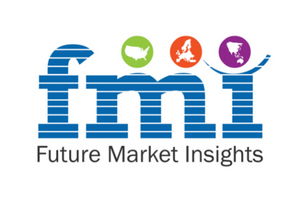Pollution levels are predicted to climb much more as the size of the global aircraft fleet and air traffic increases. As a result, electric airplanes are in high demand, as they will help cut carbon emissions.

The electrified aircraft propulsion market share is expected to reach US$ 6 Bn in 2021 and US$ 20 Bn by 2030, with a CAGR of 14.3% during the projected timeline. The adoption of cleaner and greener aircraft, advancements in sophisticated air mobility, and alternative energy sources are all driving the demand for electrified aircraft propulsion forward.
Owing to the announced lockdowns and government restrictions on public meetings owing to the COVID-19 epidemic, research and development in the electrified aircraft propulsion market have been impeded around the world.
The pandemic has slowed the production of components, including lithium-ion batteries and other power electronics parts. As the globe returns to normalcy, the sales of electrified aircraft propulsion will see a significant rise.
The shortage of replacement parts is hindering continued prototype research and development. Due to the current constraints, companies are unable to test their prepared prototypes, but this is expected to restart once the restrictions on aircraft propulsion are lifted.
With the growing size of the global aircraft fleet and increased airline travel, emission issues are expected to climb even more.
As a result, there is a desire for electrified aircraft, which is likely to aid in the reduction of carbon emissions. Institutions and local authorities such as the International Civil Aviation Organization, the Federal Aviation Administration, and the European Union Aviation Safety Agency have called for viable aircraft fuel alternatives.
To Remain ‘Ahead’ Of Your Competitors, Request For A Sample @ https://www.futuremarketinsights.com/reports/sample/rep-gb-14414
Manufacturers strive to change effectiveness by substituting hydraulically operated systems with electric systems in the electrification of aircraft.
The poor energy density of batteries is one of the most significant issues that electric aircraft manufacturers confront when it comes to long-distance flights. The watt-hours per kilogram (Wh/kg) unit of measurement for aircraft propulsion is commonly used.
The current lithium-ion batteries have an energy density of 250 Wh/kg, which is far lower than the 12,000 Wh/kg energy density offered by conventional jet fuel or kerosene. As a result, all-electric long-haul commercial flights are still a long way off, as fossil fuels are 14 times more energy-dense than battery-powered alternatives.
Some of the major factors driving the growth of the global aircraft electrification market are an increase in global government concerns about environmental pollution, stringent rules regarding carbon emissions through airplanes by the aircraft industry to reduce aircraft noise, and low operational costs.
Electric aircraft’s restricted range and capacity, on the other hand, are projected to hinder market expansion. On the other hand, advancements in superior power electronics components and Lithium-ion battery technology are expected to open up the attractive potential for the electrified aircraft propulsion market.
Key Takeaways
Competitive Landscape
To consolidate their power in the electrified aircraft propulsion market, key players have used a variety of organic and inorganic techniques.
Safran, Thales Group, Raytheon Technologies, and GE Aviation have used a number of strategies to expand their market position, including acquisitions, contracts, new product launches, collaborations, and agreements.
For More Information or Query or Customization Before Buying, Visit @ https://www.futuremarketinsights.com/customization-available/rep-gb-14414
Recent Developments
GE Aviation chose Boeing in February 2022 to assist flying tests of their hybrid-electric propulsion system on a modified Saab 340B aircraft with CT7-9B turboprop engines.
GE Aviation will get airplane modification, system integration, and flight-testing services from Boeing and its affiliate Aurora Flight Sciences.
MagniX and DESAER, a Brazilian aviation business, established cooperation in February 2022 to develop the ATL-100H, a hybrid-electric version of the ATL-100 regional aircraft.
Depending on the range of operation, the ATL-100H is predicted to save 25-40% of gasoline, which is a considerable reduction in carbon emissions. The hybrid-electric aircraft ATL-100H’s revolutionary design is the first step toward DESAER’s goal of developing an all-electric aircraft, addressing the world’s growing recognition of the need to advance sustainable aviation practices.
Key Market Segments
By Component:
By Technology:
By Application:
By Platform:
By System:
Future Market Insights (ESOMAR certified market research organization and a member of Greater New York Chamber of Commerce) provides in-depth insights into governing factors elevating the demand in the market.
Electrified Aircraft Propulsion , Electrified Aircraft Propulsion Market , Electrified Aircraft Propulsion Market Growth , Electrified Aircraft Propulsion Market Demand , Electrified Aircraft Propulsion Market Sales , Electrified Aircraft Propulsion Market Rev
Aug 12, 2022